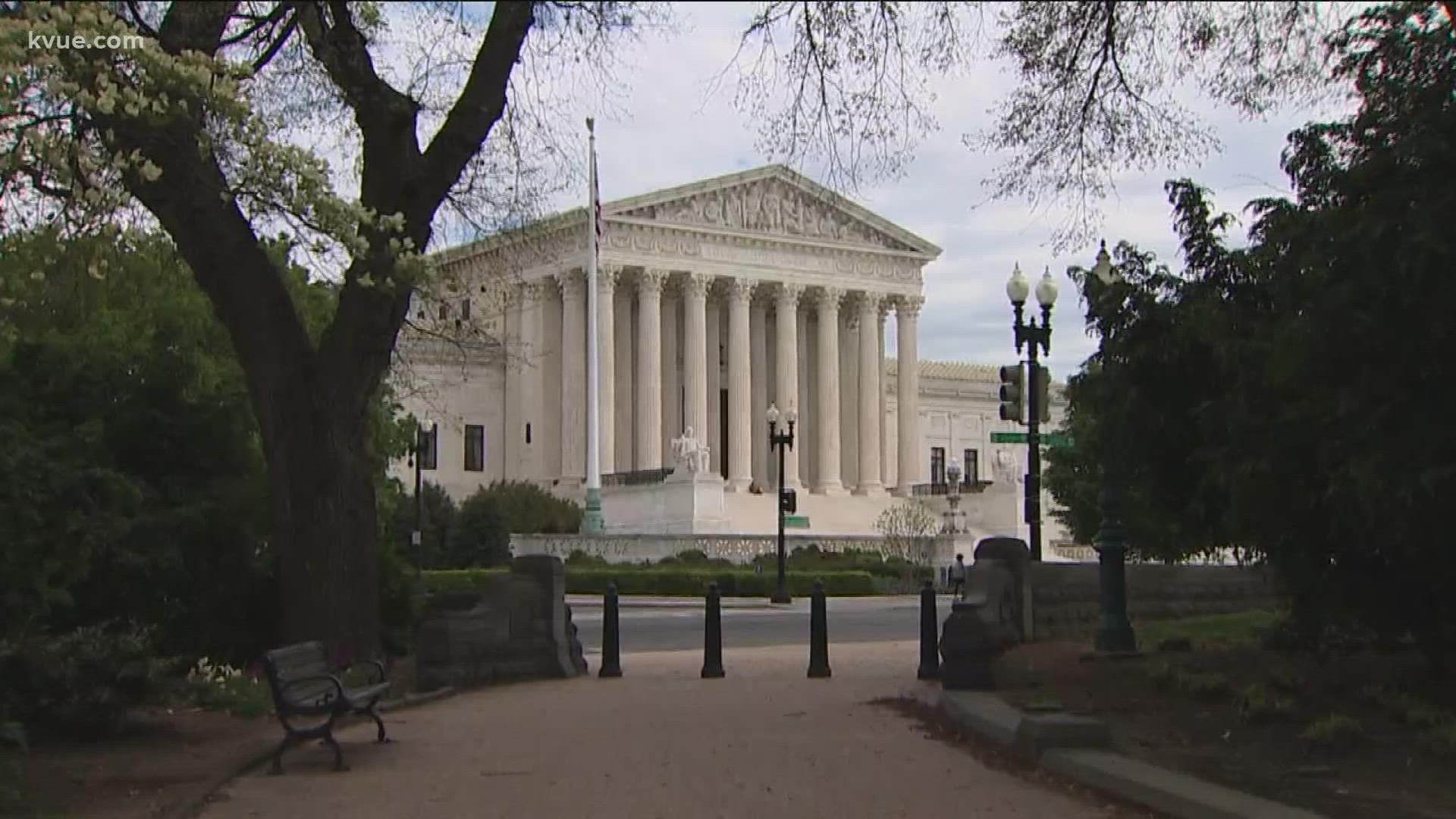TEXAS, USA — On Wednesday, Sept. 1, Senate Bill 8 - otherwise known as the "Heartbeat Act" - took effect at midnight. If allowed to remain on the books, the bill will be the most intense restriction on abortion rights and access since the U.S. Supreme Court's 1973 Roe v. Wade decision legalized abortion across the country.
The Heartbeat Act outlaws all abortions once a fetal heartbeat can be detected, which is usually around six weeks. The restrictions from the law ban virtually all abortions and essentially ends abortion access in Texas. Most women discover they are pregnant between weeks four and seven of the pregnancy.
Instead of the state government, private citizens are tasked with enforcing the new restrictions and could be entitled to at least $10,000 if they win in court.
"It's a demonically clever bill, but it is so clever that it would allow just about anything to be privatized and without the possibility of getting any sort of judicial review," Professor Sanford Levinson, who teaches various law classes at Harvard University and University of Texas, said.
Citizens cannot sue the woman who had an abortion; instead, they can sue anyone who performs an abortion or "aids or abets the performance or inducement of an abortion." Those who count as "abettors" could range from someone who provided money for an abortion, insurance providers or even someone who gave a patient a ride to the clinic. Essentially, anyone who assisted in the process can be sued, according to Caroline Mala Corbin, a professor of law at the University of Miami School of Law.
“This is so unusual; I would even say bizarre,” Corbin said. “What Texas has done here is forbidden state actors from enforcing the law. And instead is saying only private citizens can enforce the law. And not only private people, but any private person. The language actually says any person can bring a suit under this. That means it doesn't have to be someone connected to the clinic, or the woman seeking to end her pregnancy, doesn't have to be someone in Texas. It can literally be any person.”
So far, the unique way the Heartbeat Act is enforced prevents successful legal challenges to the bill. It is hard to know who to sue, since opponents cannot sue the state government for enforcing the bill.
Abortion advocates and providers requested to put the bill on hold, and the Supreme Court voted 5-4 Sept. 2 to deny the emergency appeal. The Fifth Circuit Court of Appeals denied a request to block the law as well.
Only the Justices who dissented provided reasonings as to why they did not support the law. The Justices in the majority, allowing the law to stand, remained silent.
"I think they behaved truly irresponsibly in offering no genuine explanation," Levinson said. "It's fair to say that most lawyers believe that to uphold what Texas did, the court will, in fact, have to overrule Roe vs. Wade. And that is what would make it constitutional, not any existing law."
"What we're saying with this law is that no innocent child should be killed, should die," State Sen. Angela Paxton (R-Allen) said on ABC Thursday. "I'll follow up with is that a woman who is in a situation of a rape or incest needs a lot more support around her, and an abortion may temporarily alleviate certain circumstances in her life. But there are tremendous other elements in her world that need addressing that abortion will never remedy."
Abortion providers and rights advocates said the law would prohibit 85% of abortions in Texas and force many clinics to close. In fear of new lawsuits and high fines, many abortion providers in Texas, including Planned Parenthood, have stopped scheduling abortions more than six weeks out.
In lieu of access to safe abortions, abortion providers and health experts are worried women will instead to turn to potentially dangerous ways to end a pregnancy.
As the 'Heartbeat Act' goes into effect, other states could be inspired to write and pass similar laws restriction access to abortions across the nation.
PEOPLE ARE ALSO READING:

